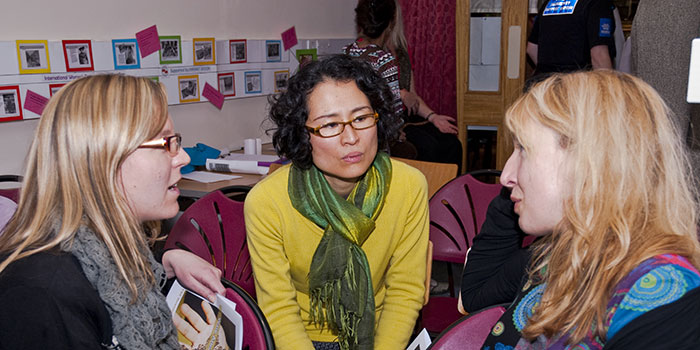
The Justice for Women program is shaped by the unique voices and experiences of a multitude of people across race, ethnicity, ability, class, sexuality and age. It is within this rich foundation that we work to:
These priorities nourish the work and service of this church and society.
Within the Jewish and Christian traditions, justice is linked to God’s love, God’s fervor for life lived out of grace for others. Lutherans affirm that because we are redeemed by God through Jesus Christ — because we are justified — we turn to others to find out what they need.
Justice infuses Scripture, from the Hebrew prophets to Jesus’ parables and life. Broadly speaking, biblical justice concerns the integrity of the entire creation. The ELCA recognizes that the integrity of women and girls is constantly violated and/or compromised, physically, intellectually, economically, spiritually and emotionally. Gender justice, including justice for women, matters because through God’s grace we are called to tend to women, girls, and people whose gender identity and expression fall outside of familiar categories as our neighbors. The ELCA also recognizes that tending to our neighbors includes not only immediate needs, such as food, shelter and safety, but also changes in social and religious ideas and structures.
What can you do?
Educate for justice.
Advocate for change.
Lead into the future.
Use Justice for Women program resources for individual and group study and action. If you are looking for more resources from a global perspective, explore the Gender Justice Policy of the Lutheran World Federation.